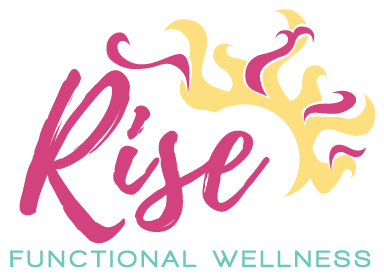I don’t often find myself at a loss of words. I think the idea that May is an important month to share my messages about Mental Health created a pressure within me that led to me shutting down and not knowing how to use my voice. I have so much I want to share and I know I should share and yet I became so overwhelmed by the idea of getting it right that instead I was at a loss.
If I focus on my purpose for the month that I shared on social media, it would be these three ideas:
- Awareness
- Action
- Support
Why Mental Health Awareness?
MentalHealth.gov says ‘Mental health includes our emotional, psychological, and social wellbeing. It affects how we think, feel and act. It also determines how we handle stress, relate to others and make choices.’
- 1 in 5 adults have reported struggling with mental health.
- 1 in 5 young people (ages 12-25) report the pandemic had a significant negative effect on their mental health.
- In 2020, more than 12 million people reported serious thoughts of suicide.
- Overall, the suicide rate has increased 35% since 1999.
- There was a reported increase in the use of alcohol and drugs to cope with stress in 2020.
What is the difference between mental illness and struggling with mental health?
Mental health tends to focus on overall wellbeing, and an experience that tends to have more positive emotions than negative emotions. Whereas mental illness takes into consideration diagnoses such as depression and anxiety, or eating disorders, bipolar disorder and schizophrenia to name a few.
There is a lot of stigma around mental illness and people are often afraid to seek help, which means a lot of people are struggling in isolation. If you believe you have a mental illness, there are a variety of resources, such as medication and therapy, that can help you not only feel better but even recover.
As an occupational therapist by background and not a psychiatrist or medical doctor, I emphasize strategies for mental health and wellbeing. Instead of focusing on a diagnosis a person may have received, I like to help clients identify tools that help them to feel better on a day to day basis.
Thrive in 5
To thrive means to prosper or flourish. Our goal in life should not be to merely survive but to thrive. When I think of thriving I think of words like abundant, fulfilled, vibrant and blissful. How often do you associate these words with the life you are living? Most of us aren’t often enough.
Evidence suggests there are 5 key components to improve our mental health and wellbeing.
- Connect with others- we have an innate need to belong, develop relationships and experience community.
- Practice self-care- this includes your physical as well as your mental health. Be physically active, nourish your body and know when to rest.
- Be present through mindfulness- when we worry, are anxious or depressed, we most often are focusing either on the future or the past. Instead, shift your focus to the present moment. Breathing exercises and grounding exercises are great to bring you back to the present moment.
- Continue to grow- learn new skills that seem interesting or exciting, read books, take a chance on the uncomfortable and the unfamiliar.
- Contribute to others- “when I show up in service to others, my suffering is diminished.” Again, contribution is another innate need. Throughout our evolution we have contributed as providers and protectors, we were part of the village or the tribe and each of us had something to contribute.
Our mental health affects every fiber of our being and ultimately impacts our health, happiness and ability to thrive.
Based on this idea that we all desire a life in which we are happy, healthy and thriving, I have created a THRIVE MAP signature program which builds upon these basic 5 concepts. I am also hosting a free master class at the end of May for a deeper dive. I will make sure to include a link below so you can learn more.
https://view.flodesk.com/pages/627edbb09471781aad3efbb0
Supporting others
The idea of supporting others who are struggling with their mental health can be scary and overwhelming. Because of this, we often invalidate or turn away from the person who needs us and our support the most. Most people are not qualified to be a therapist, nor is that expected of you. However, most people who are struggling just need to know that they are not alone. Here are some phrases you can use to show your support:
- I’m sorry that happened to you.
- Thank you for trusting me enough to share your story with me.
- I am here to listen and support you.
- How can I best support you right now? Do you want me to listen or are you seeking advice?
- I may not have the skills to support you but I am willing to help you find the right support.
Supporting others isn’t about having all of the answers or having it all figured out. It is about being there for a friend. Staying there to listen. Or finding a number they can call to get them help that they need.
At the end of the day, having good mental health is about feeling positive about ourselves and others, being able to form good relationships and having the resilience to overcome challenges.
We will all face challenges in our lives. But if we know that we are supported through the process and we know some tools to help us cope, we can have faith that we will be alright.
If you need additional support, contact one of the following resources below:
SAMHSA’s National Helpline, 1-800-662-HELP (4357)
Suicide Prevention Lifeline at 1-800-273-TALK (8255)
For emergencies, call 911
